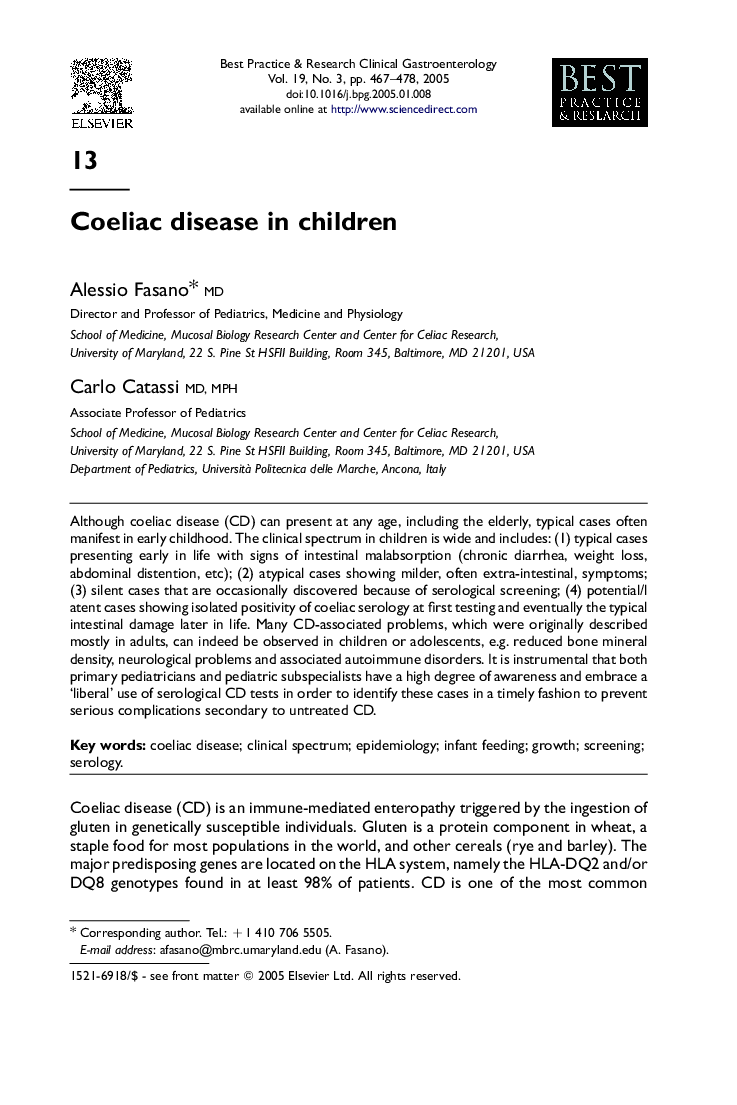| Article ID | Journal | Published Year | Pages | File Type |
|---|---|---|---|---|
| 9236373 | Best Practice & Research Clinical Gastroenterology | 2005 | 12 Pages |
Abstract
Although coeliac disease (CD) can present at any age, including the elderly, typical cases often manifest in early childhood. The clinical spectrum in children is wide and includes: (1) typical cases presenting early in life with signs of intestinal malabsorption (chronic diarrhea, weight loss, abdominal distention, etc); (2) atypical cases showing milder, often extra-intestinal, symptoms; (3) silent cases that are occasionally discovered because of serological screening; (4) potential/latent cases showing isolated positivity of coeliac serology at first testing and eventually the typical intestinal damage later in life. Many CD-associated problems, which were originally described mostly in adults, can indeed be observed in children or adolescents, e.g. reduced bone mineral density, neurological problems and associated autoimmune disorders. It is instrumental that both primary pediatricians and pediatric subspecialists have a high degree of awareness and embrace a 'liberal' use of serological CD tests in order to identify these cases in a timely fashion to prevent serious complications secondary to untreated CD.
Related Topics
Health Sciences
Medicine and Dentistry
Endocrinology, Diabetes and Metabolism
Authors
Alessio (Director and Professor of Pediatrics, Medicine and Physiology), Carlo (Associate Professor of Pediatrics),
